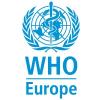
World Health Organisation (WHO)
The World Health Organization (WHO) is an independent organization within the United Nations system. WHO was founded in 1946. Czechia became a member of the WHO in 1993 as one of the successor states of the former Czechoslovakia, which became one of the founding members of the Organization.
The headquarters of the World Health Organization (WHO) is based in Geneva and the Organization comprises 194 members, divided into 6 regional groupings. The position of the Director-General has been held by Dr. Tedros Adhanom Ghebreyesus, the office of the Regional Director is held by Dr Hans Kluge. The WHO European Regional Office is based in Copenhagen.
WHO's activities include consulting activities according to the needs of the Member States, professional assistance in the preparation of national health strategies, monitoring the indicators of the health status of the population and indicators of evaluating health systems of individual states, developing and testing new technologies and procedures for controlling health care diseases. The WHO role is irreplaceable both in reducing the incidence of infectious diseases and during the epidemiological activities of experts at the point of occurrence. The importance of the WHO also increases in the context of the growing risk of bioterrorism and in solving other crisis events and humanitarian aid.
The WHO activities are summarized in the following points:
- - Health Support
- - Health safety support
- - Consolidation of medical systems
- - Application of research and achieved knowledge in formulating priorities and strategies
- - Strengthening cooperation
- - The effort to improve the work of the organization
The main governing body of the WHO is the World Health Assembly (WHA). Annual sessions of the WHA take place at the level of Ministers of Health in May in Geneva. The WHA adopts decision with regards to the programme and budgetary matters, as well as the most pressing health issues.
More information on the WHO website.

